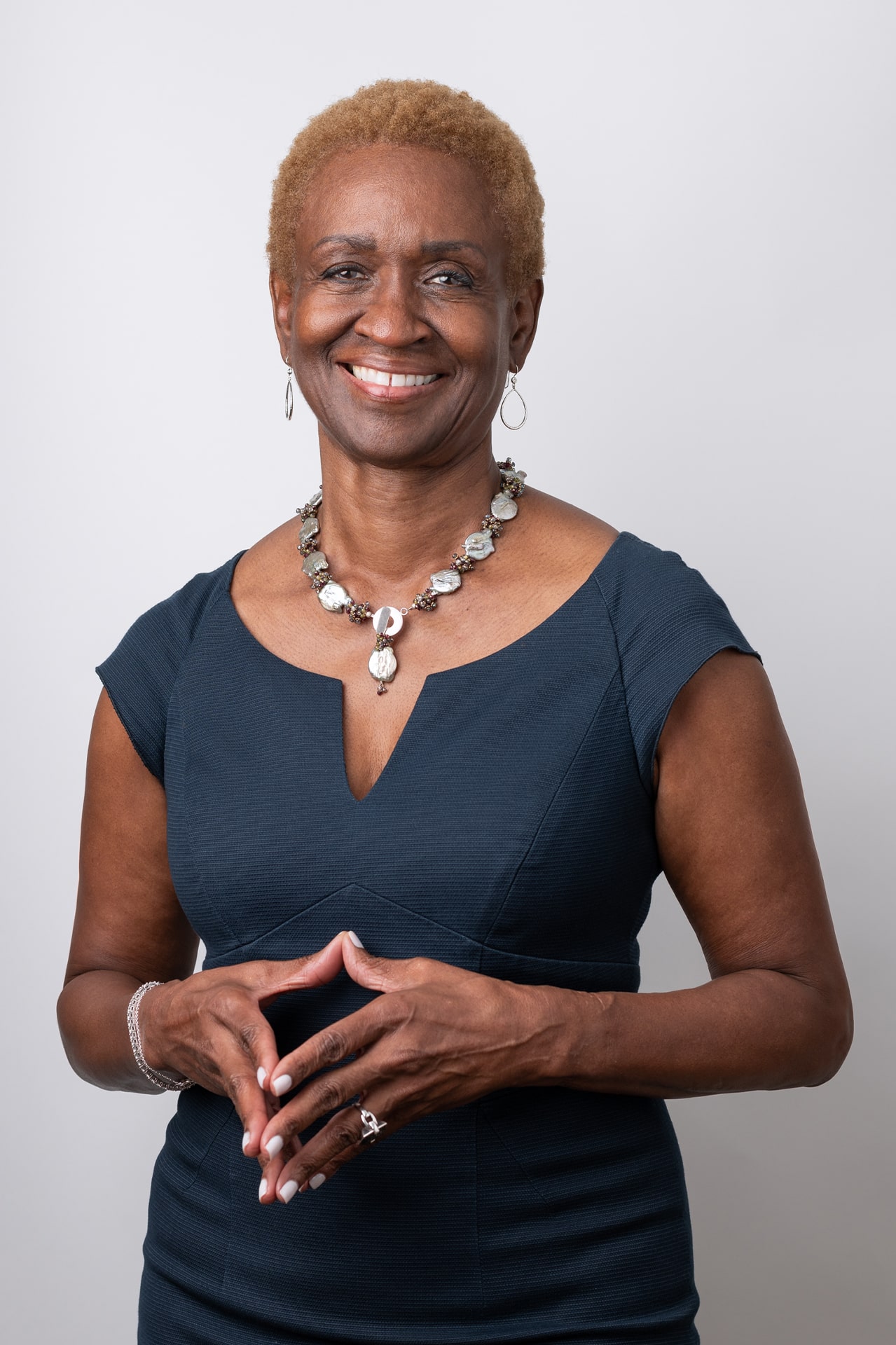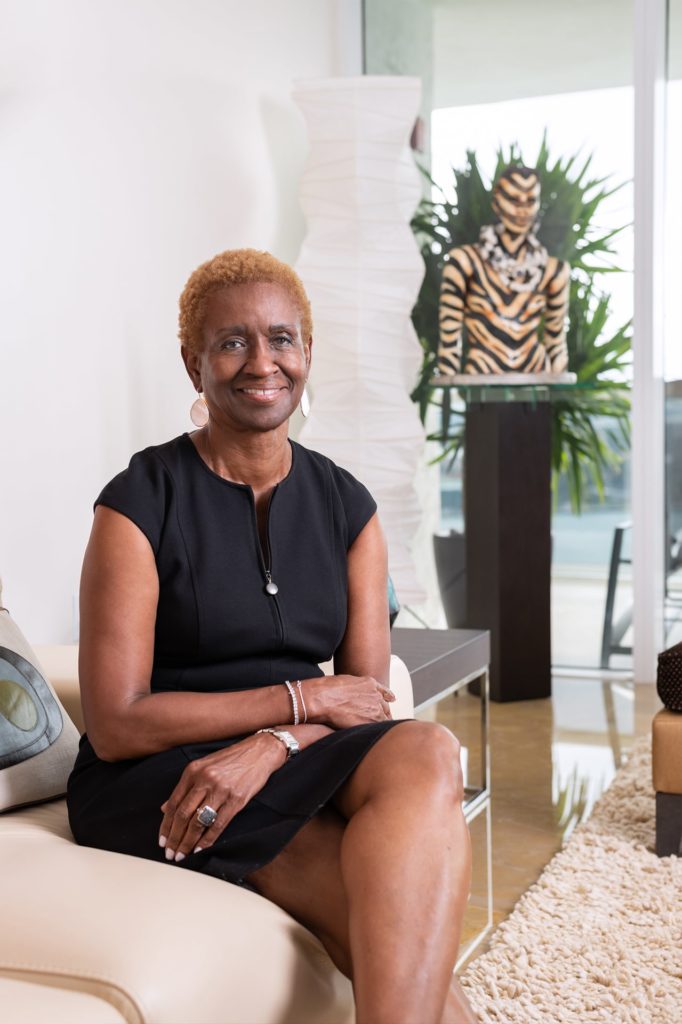
Dorothy Terrell
Former SVP, Worldwide Sales, NMS COMMUNICATIONS
It’s a long way from Hallandale, Florida, to Maine. To Dorothy Terrell, that was the point. She wanted distance between her and everything she’d grown up with in south Florida: Entrenched racism. Segregation. The lack of opportunities for bright young African American women in the 1960s. The protectiveness of the community in which she’d been raised, where she didn’t even cross the street into the white part of town unless someone was along.
So, when a recruiter showed up at Florida A&M University where Dorothy was about to graduate with a major in English, she listened. All the recruiter cared about was that Dorothy had a college degree. All Dorothy cared about was that the job being offered was hundreds of miles from Florida.
Which was how she found herself working with inner city teens as a counselor at the U.S. Job Corps program in Maine. She’d never been north of Tallahassee. She’d never seen the seasons change, nor snow. She’d never spent time around people who were white. Until college, she’d not even spent much time with people not from her neighborhood. Was she homesick?
“I loved it,” says Dorothy. “I was supposedly the adult in charge, but those young women I counseled came from places like Chicago and Detroit and New York. They knew much more about life than I did. And I learned a lot. They were like, ‘Come on, college girl. Let me tell you how this goes.’”

On the one hand, Dorothy knew she’d been lucky. Hallandale was lower-income and segregated, but exceedingly close-knit. In Hallandale, everybody knew everybody, and everyone looked after everyone else. She was being mentored without having a clue what mentorship was.
“I didn’t know anybody growing up who did what I’ve done in my career,” says Dorothy. “But I did see people caring about each other. Those were my role models.” It was an example she would come to repeat. For example, while she could have attended the high school nearest her community, there was a better one—Dillard High—up the road in Fort Lauderdale. When Dorothy’s second grade teacher became a school principal in Pompano, she made a point of picking up Dorothy and driving her to Fort Lauderdale on her way to Pompano each morning so that Dorothy could attend Dillard High. Then she picked her up and brought her home each evening.
Not for the first time, someone saw more in Dorothy than she saw in herself and invested.
After a year in Maine, Dorothy moved to Boston. She became a counselor and then an administrator for the Opportunities Industrialization Center (OIC), which is a nonprofit adult education and job training organization. After a while, the state of Massachusetts came calling. Dorothy went to work for the Massachusetts Office for Children as a director of licensing, where her group developed regulations to license residential facilities, group homes and foster care agencies and reviewed and approved state institutions caring for children.
Two important things came out of these roles. One was deep experience building a strong team. “I’m good at spotting talent,” says Dorothy. “Even when I didn’t know what I was doing in a new job, I knew how to hire gifted people.” The other important thing that happened was getting acquainted with representatives from Digital Equipment Corporation while chairing the business advisory council at OIC. They, too, were good at spotting talent. They later asked Dorothy to join Digital’s HR department.
It was a time when the new world of digital technology was exploding. Dorothy started in employee relations at Digital’s largest final assembly and test plant but soon got promoted, and then promoted again. Eventually she was group personnel manager, supporting thousands of employees at several Digital plants. She also got used to learning what she needed to know on the fly. And she kept on surrounding herself with talented people.
The day one of her associates told her she should apply to be the next plant manager at Digital’s keyboard manufacturing plant in Roxbury, she laughed at him. But then she began to think. The plant pulled workers from the very neighborhoods she’d served working for social service agencies and state government. She’d get to develop people, make things run well, and build teams. She already knew the staff there, and they wanted her. When she applied and was hired to become Digital’s plant manager in Roxbury, she was the only woman—and the only African American woman—in the U.S. doing what she was doing.
Digital eventually sent Dorothy to California to start up their silicon wafer manufacturing facility in Cupertino. From working with people from Boston’s inner city, Dorothy was now working with computer engineers on a highly technical endeavor. Her success in Cupertino captured industry attention, including the eye of Sun Microsystem’s CEO. Sun hired Dorothy to start up SunExpress, an aftermarket provider of technology and services. As president of SunExpress, she grew the business into an international success with a little over 300 employees and just over $300 million in sales. A subsequent career leap took her to NMS Microsystems, where she served as President-Platforms & Services Group and Senior VP-Worldwide Sales. She then became a partner at First Light Capital (a venture capital firm) before founding FirstCap Advisors. She also has served on numerous corporate and charitable boards. She was a director on the boards of General Mills, Inc.; Herman Miller, Inc.; Sears, Roebuck and Company; and Lightbridge, Inc.–all public companies—and privately held Endeca Technologies, Inc. She is currently a trustee of the Pérez Art Museum Miami, New World Symphony, and The SEED School of Miami. After many years on the board of the Massachusetts General Hospital, Dorothy now continues as an honorary member and was recently named to the newly formed advisory committee of UNICEF.
These days, she is back to her first love—investing in people—through service leadership. She finds a way to keep bringing people up through board participation, leading non-profits, and getting personally involved. A support group for young women that she started nearly 20 years ago still continues to invest in and care about one another, and they maintain their contact with Dorothy.
“Coming from Hallandale, we were taught to give back,” she says. “You just see people doing it all around you, so that’s what you do.” You can take the girl out of Hallandale, evidently, but you can’t take Hallandale out of the girl. From being reluctant even to cross the street and leave her neighborhood, she’s come very far indeed.
“It’s such a big world out there,” says Dorothy. “I’d say: Make mistakes; they won’t kill you. And keep going. Keep going. Go do the things you think you cannot do.”